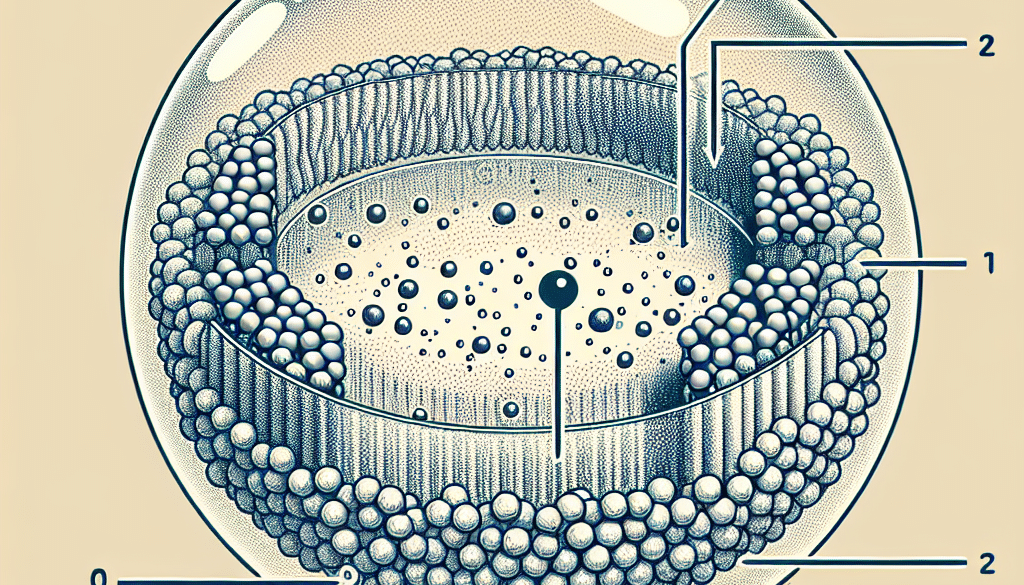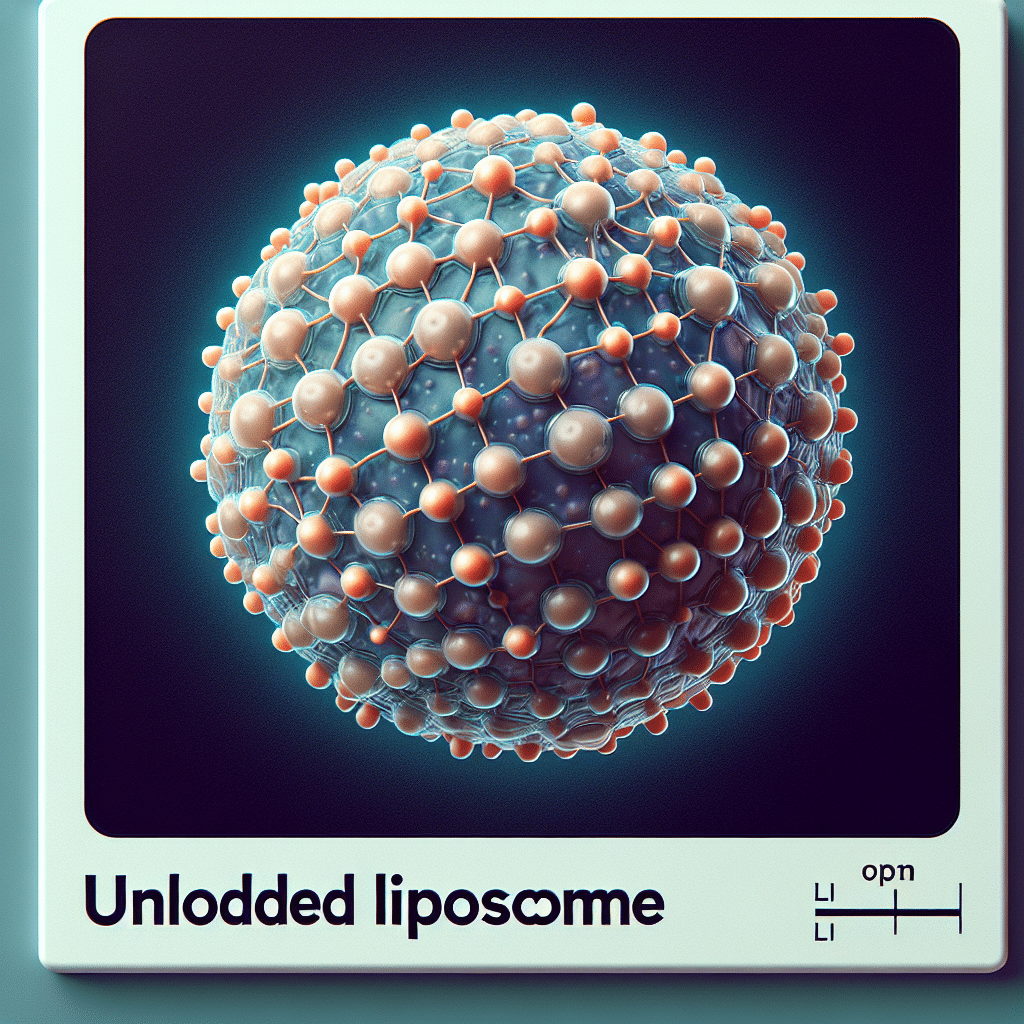Unloaded Liposme: What Is Unloaded Liposme?
-
Table of Contents
- Unloaded Liposome Technology: Revolutionizing Drug Delivery Systems
- Understanding Unloaded Liposomes
- The Structure and Composition of Liposomes
- Advantages of Using Unloaded Liposomes
- Applications of Unloaded Liposomes
- Challenges and Considerations
- Case Studies and Statistics
- The Future of Unloaded Liposome Research
- Conclusion: The Potential of Unloaded Liposomes
- Discover ETChem’s Protein Products
Unloaded Liposome Technology: Revolutionizing Drug Delivery Systems
Liposomes have been at the forefront of medical research for decades, offering a promising avenue for targeted drug delivery. Unloaded liposomes, in particular, are a fascinating area of study within this field. These microscopic vesicles have the potential to revolutionize how we administer and control the delivery of therapeutic agents. In this article, we will delve into what unloaded liposomes are, their unique properties, potential applications, and the future of this innovative technology.
Understanding Unloaded Liposomes
Liposomes are spherical vesicles with at least one lipid bilayer. The liposome can be used as a vehicle for administration of nutrients and pharmaceutical drugs. Unloaded liposomes are those that have not been loaded with a drug or therapeutic agent. They are essentially empty vesicles that can be later filled with the desired substance for targeted delivery.
The Structure and Composition of Liposomes
Liposomes are composed of phospholipids, which are molecules with a hydrophilic (water-attracting) head and a hydrophobic (water-repelling) tail. When phospholipids are dispersed in water, they arrange themselves into a bilayer structure, with the hydrophobic tails facing inward and the hydrophilic heads facing outward. This arrangement forms a closed, spherical structure that can encapsulate compounds within its aqueous core or within the layers of the lipid bilayer.
Advantages of Using Unloaded Liposomes
- Protection of Therapeutic Agents: Unloaded liposomes can be loaded with drugs that are sensitive to degradation, protecting them from the external environment until they reach their target.
- Controlled Release: They allow for controlled release of the drug, which can improve the therapeutic efficacy and reduce side effects.
- Targeted Delivery: Liposomes can be modified to target specific cells or tissues, reducing the impact on non-target areas.
- Reduced Toxicity: By encapsulating drugs within liposomes, the toxicity of the drugs can be minimized as they are less likely to interact with non-target cells.
Applications of Unloaded Liposomes
Unloaded liposomes have a wide range of potential applications in the medical field. Here are some of the most promising areas:
- Cancer Treatment: Liposomes can be designed to target cancer cells specifically, delivering chemotherapy drugs directly to the tumor site.
- Vaccine Delivery: They can be used to deliver antigens in vaccines, enhancing the immune response.
- Gene Therapy: Unloaded liposomes can encapsulate genetic material and deliver it to cells for gene therapy applications.
- Ocular Diseases: They can be used to deliver drugs to the eyes for the treatment of various ocular diseases.
Challenges and Considerations
While unloaded liposomes offer many advantages, there are challenges that need to be addressed:
- Stability: Liposomes can be unstable and may fuse, aggregate, or leak their contents before reaching their target.
- Scalability: Manufacturing liposomes on a large scale can be complex and costly.
- Regulatory Hurdles: Extensive testing and regulatory approval are required before liposome-based therapies can be brought to market.
Case Studies and Statistics
Several studies have demonstrated the effectiveness of liposome-based drug delivery. For instance, Doxil, a liposomal formulation of doxorubicin, has been approved by the FDA for the treatment of ovarian cancer and multiple myeloma. According to a study published in the Journal of Controlled Release, Doxil has shown a significant reduction in cardiotoxicity compared to conventional doxorubicin.
Another study in the International Journal of Nanomedicine highlighted the potential of liposomal formulations in improving the bioavailability of poorly water-soluble drugs, which is a significant challenge in drug development.
The Future of Unloaded Liposome Research
The future of unloaded liposome research is bright, with ongoing studies exploring novel ways to improve their stability, targeting capabilities, and loading efficiency. Innovations in nanotechnology and materials science are likely to further enhance the potential of liposomes in drug delivery.
Conclusion: The Potential of Unloaded Liposomes
Unloaded liposomes represent a versatile and powerful tool in the realm of drug delivery. With their ability to protect and precisely deliver therapeutic agents, they hold the promise of improving treatment outcomes for a variety of diseases. As research progresses, we can expect to see more liposome-based therapies entering clinical use, offering hope for patients and advancing the field of medicine.
Discover ETChem’s Protein Products
In the context of liposome research and development, proteins play a crucial role. ETChem’s protein products, including various types of collagen, are essential for researchers and developers working on liposome technologies. Their high-quality protein offerings can be used in the formulation of liposomal products, ensuring efficacy and safety in drug delivery applications.
About ETChem:
ETChem, a reputable Chinese Collagen factory manufacturer and supplier, is renowned for producing, stocking, exporting, and delivering the highest quality collagens. They include marine collagen, fish collagen, bovine collagen, chicken collagen, type I collagen, type II collagen and type III collagen etc. Their offerings, characterized by a neutral taste, instant solubility attributes, cater to a diverse range of industries. They serve nutraceutical, pharmaceutical, cosmeceutical, veterinary, as well as food and beverage finished product distributors, traders, and manufacturers across Europe, USA, Canada, Australia, Thailand, Japan, Korea, Brazil, and Chile, among others.
ETChem specialization includes exporting and delivering tailor-made collagen powder and finished collagen nutritional supplements. Their extensive product range covers sectors like Food and Beverage, Sports Nutrition, Weight Management, Dietary Supplements, Health and Wellness Products, ensuring comprehensive solutions to meet all your protein needs.
As a trusted company by leading global food and beverage brands and Fortune 500 companies, ETChem reinforces China’s reputation in the global arena. For more information or to sample their products, please contact them and email karen(at)et-chem.com today.





